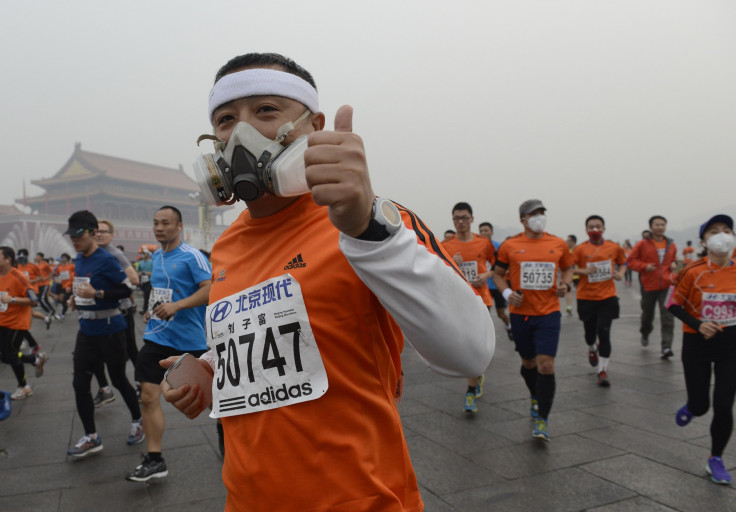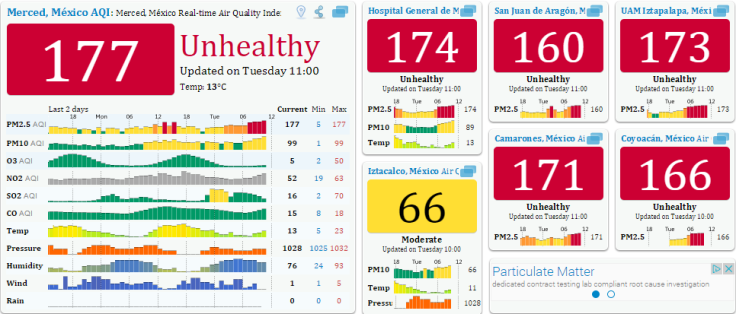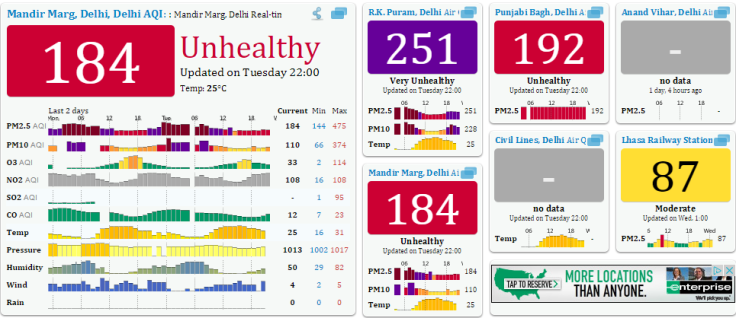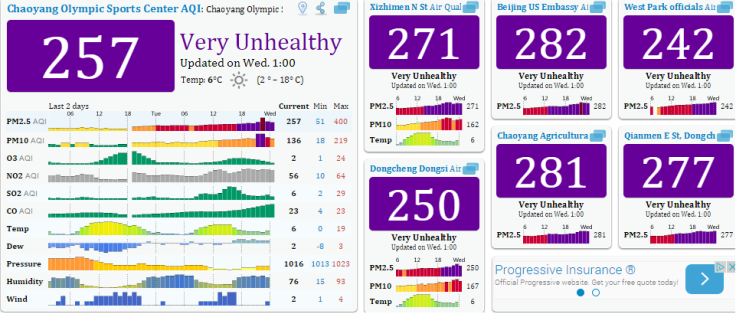Beijing's Winter Olympics 2022 Bid Threatened By Air Pollution Levels

As a blanket of smog hangs over Beijing, the local government is vowing to clean up the air by 2022 -- the date of the Winter Olympic Games that the city is vying to host. Beijing may have the infrastructure and economic backbone to support a global event such as the Olympics, but the city’s worsening pollution may be what kills the bid and gets the games awarded to Almaty in neighboring Kazakhstan.
According to Wang Hui, the media director of Beijing’s Olympic bid task force, the city will be instituting a two-part plan to provide clean air for athletes to compete in, setting target dates in 2017 and 2022. “Beijing has called upon cooperation in major provinces and districts in northern China and will mobilize all its resources to clean up the air and bring down the air quality index value,” Wang said, according to the South China Morning Post. “We’ll make sure by 2022 the air quality in Beijing is the best for athletes to compete.”
While Wang doesn’t delve deeply into the specifics of how China plans to cut air pollutants -- specifically PM2.5, particulates that are small enough to travel deeply into the respiratory tract -- it will likely require state-level cooperation similar to what it did during the Beijing Summer Olympic Games in 2008.
Ahead of the 2008 Summer Olympics, the capital introduced a traffic ban system to reduce the number of vehicles on the streets and car emissions. License plates ending in odd numbers could drive on odd dates, and even-numbered plates would drive on even days, with the exception of public transportation and government vehicles.
The government also pulled the plug on operations at construction sites, chemical plants and cement factories in and around Beijing two weeks ahead of the games and through the games. According to a Time magazine report in 2008, factories that were still allowed to operate during the games had to cut their emissions by 30 percent.
Both plans, while temporary, were effective. For the most part, athletes and fans saw blue skies for the monthlong sporting event, and pollution didn’t distract athletes.
But this wasn’t the case last month, when runners in the Beijing Marathon were subjected to dangerous levels of smog. In order to protect themselves, some runners were even pictured wearing what appeared to be industrial-grade gas masks.
Beijing Marathon runners wear masks as race is held in dangerous smog conditions. Insane. http://t.co/o5AH9QxNp5 pic.twitter.com/p1gBcAOGuB
- Jim Roberts (@nycjim) October 19, 2014Would never run the Beijing marathon unless they improve the air quality. #maddow @maddow
- irene haralabatos (@rini6) November 1, 2014Did any (cough, cough) of you run the (cough) Beijing (cough) Marathon? http://t.co/e0JFyBmglS pic.twitter.com/9M0RdTKT3D
- Outside Magazine (@outsidemagazine) October 21, 2014Compared with other cities that are bidding for the games, Beijing easily has the worst pollution. As of October, Beijing was on a short list of bidders for the 2022 Winter Games, competing with Oslo, Norway, and Almaty. In October, however, Oslo, the city with easily the best air quality among the three bidders, withdrew. Though air quality data is less widely cited in Almaty, the city was named the world’s ninth-most polluted city, according to Mercer Human Resource Consulting, with 85 percent of pollution attributed to transportation exhausts.
Compared with other notoriously polluted cities such as Mexico City and Delhi, Beijing and its surrounding cities frequently register higher pollution rates.


Data for today show just how widespread the issue is for Beijing.

Though Beijing has managed to pull off a clean-air magic act in the past, the question is whether it will work come 2022. Since 2008, pollution has gotten markedly worse, with even more cars on the road and factories in full operation. With international attention currently on China as it hosts world leaders for the Asia-Pacific Economic Cooperation summit, Beijing has been scrambling to keep the air clean, without much success. According to a report by the Guardian, despite renewed temporary efforts to close factories within 125 miles (200 km) of Beijing’s city center and limiting cars on the roads, pollution levels in Beijing still registered “unhealthy” and even “hazardous” levels on the AQI scale.
© Copyright IBTimes 2024. All rights reserved.





















